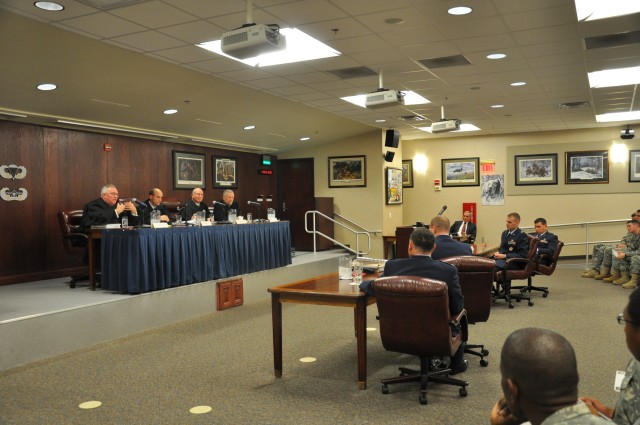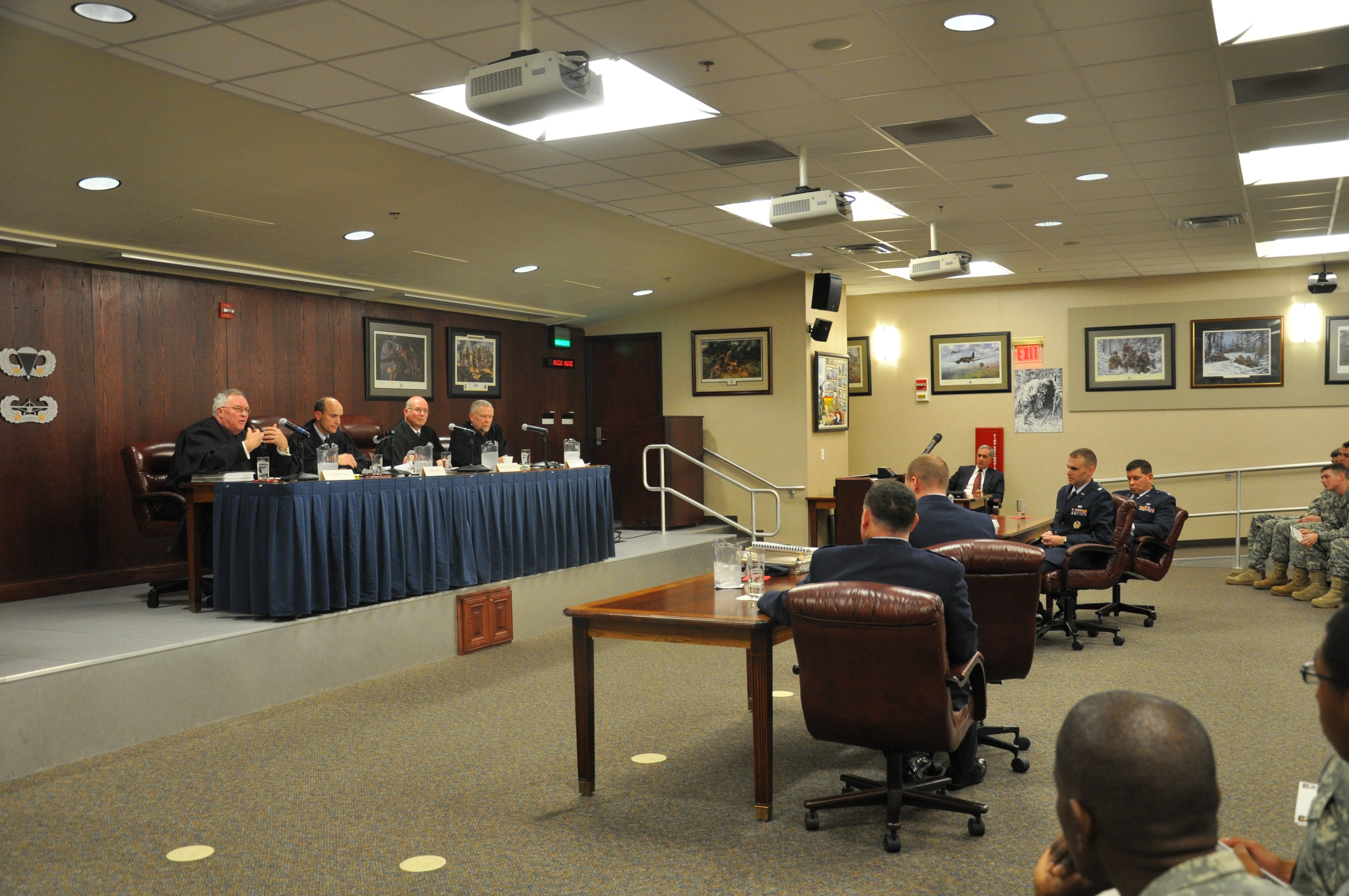
The United States Court of Appeals for the Armed Forces visited Fort Campbell Wednesday to hear the case of United States v. Cowgill, at division headquarters.
The visit was a part of the court's Outreach Program, which brings the court to the people. The Outreach Program is designed to bring the process of justice to public view, so that people can become more informed about the military's legal system. The Court of Appeals for the Armed Forces is based in Washington, D.C.
At Fort Campbell, the court was met by a roomful of judge advocates not only from the local installation but from Fort Knox, Ky., as well.
The case involved Air Force Staff Sgt. James Cowgill, who was convicted of using marijuana and cocaine, as well as marijuana possession in 2007 in Tacoma, Wash. As a result, he was sentenced to two months confinement, a pay grade reduction and a bad conduct discharge after his court-martial.
In this appellate trial, the court considered whether the military judge abused her discretion in denying the defense motion to suppress all evidence from Cowgill's home. The military judge had determined that there was probable cause for a search.
Cowgill was represented by Capt. Michael S. Kerr, and the U.S. represented by Lt. Col. Jeremy S. Weber, both Air Force.
From the very beginning, the Court of Appeals justices peppered both sides with questions. Although both attorneys held pages of notes, they were kept on their toes answering the judges' queries during each side's 20 minute presentation of oral arguments.
After the trial, the court's judges participated in a question-and-answer session with the audience. Five judges form the Court of Appeals, including Chief Judge Andrew Effron, Judge James Baker, Judge Charles Erdmann, Judge Scott Stucky and Judge Margaret Ryan. Ryan was unable to attend the Fort Campbell visit.
The judges answered questions about the way the military court system works, how it differs from civilian courts, how judge advocates can improve in their oral arguments, how the court selects cases and the court's progress on implementing electronic filing of trial proceedings.
In a response to a question about whether military and civilian courts differ, Erdmann said the two are strikingly similar.
"You would walk away from here with almost exactly the same impression that you would with a civilian court," he said. "There are cases where we deal with uniquely military issues; this [case] is not one of them. This is a matter of general constitutional law. The law that we are applying is exactly the same. The arguments are going to be strikingly similar. ... Quite frankly, most of our cases deal with general issues of law that are fully applicable to the civilian courts as they are to the military courts."
Captain Janae Lepir, from the office of the Staff Judge Advocate, was instrumental in bringing the court's visit to fruition.
"Every year they go to different installations," she said. "I actually clerked for Judge Baker when I first came out of law school, so I had gone on one of these visits to the Air Force Academy and heard a case. I thought that it would be neat for them to come here and hear a case and give everyone a chance to see the appellate process."
To be selected, installations must submit a letter of invitation to the court. Then, the court reviews the invitations to decide where to travel.
"Fort Campbell thankfully made the cut this year," Lepir said.
Deputy Advocate General Lt. Col. Jay Morse said the visit is especially lucky for the post's judge advocates, because it gives them an idea of what to expect when it comes to oral arguments in appellate cases.
"This is an opportunity for a lot of these brand new judge advocates to see the system firsthand," he said. "You hear about it, you read about it, but to actually see the judges sitting there and to see the exchange between them and the counsel and knowing that they actually have probing questions ... From an advocate's point of view, it's great to see that the judges are active."
The court only travels to hear cases a couple of times throughout the year. The judges will return to Washington to review the oral arguments of Cowgill's case before making a decision.

Social Sharing